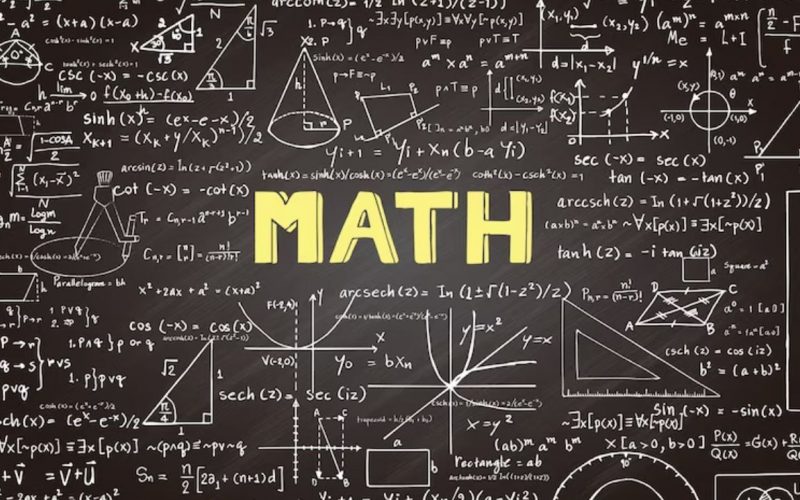A Level Maths can be a very demanding and challenging subject and is a huge step up from GCSEs. However, that doesn’t mean A-level math is very difficult to pass, as it solely depends on individual strengths, interests, and aptitudes.
A-Level subjects cover a wide range of topics and disciplines, and what one person finds challenging, another might excel in.
In this article, we’ll compare A-level math with GCSE math while giving clear reasons why you should not consider A-level maths as difficult. Carefully read through.
Table of contents
What Can I Expect When Studying A-Level Maths?
A-Level Math focuses on more advanced and complex topics, including calculus, advanced algebra, mechanics, and statistics. The content is more in-depth and requires a deeper understanding of mathematical principles.
A-level maths often demands a higher level of independent study and self-discipline than GCSE Maths. You’ll need to explore concepts in more depth and tackle complex problems on your own.
A-Level Maths covers a wide range of advanced mathematical topics, including calculus, algebra, geometry, trigonometry, statistics, and mechanics. These topics are explored in greater depth compared to GCSE Maths.
Furthermore, with recent changes to the exam schedule for A-Level Maths, students are now being assessed with ALL exams being taken at the end of the second year, rather than sitting an exam in the first year and another in the second year.
This ‘linear’ change means all students will sit exams at the end of the course, so students must refer back to their notes in the first year and revise as effectively as possible when the exam period rolls around. An example and breakdown of this change can be found within the AQA resources section.
Here are a few topics to expect in A-level math:
- Proof
- Algebra and functions
- Coordinate geometry in the (x,y) plane
- Sequences and series
- Trigonometry
- Exponentials and logarithms
- Differentiation
- Integration
- Numerical methods
- Vectors
- Statistical sampling
- Data presentation and interpretation
- Probability
- Statistical distributions
- Statistical hypothesis testing
- Quantities and units in mechanics
- Kinematics
- Forces and Newton’s laws
- Moments
At A-Level, there are three exam papers, with the above units broken down into three parts.
READ ALSO: How to Get a 9 in GCSE Maths in Less than 2 Months
Is A-Level Maths Hard?
A-level maths is generally considered to be a challenging academic course, especially when compared to GCSE (General Certificate of Secondary Education) Maths. However, whether A-level maths is “hard” for you can be subjective and depends on your prior performance in mathematics
The first year of A-Level Maths is fairly similar to GCSE Maths in terms of difficulty. The difficulty of A-Level Maths increases only in the second year — this is when your mathematical ability will be truly tested.
However, if you solely compare pass rates, GCSE Maths has a pass percentage of 55.4 percent compared to A-Level Math’s 96.3 percent.
The percentage is much higher than in English literature and language, which is supposed to be easier than in Maths.
GCSE vs. A-Level Maths: Which Is Harder?
The difficulty of GCSE (General Certificate of Secondary Education) Maths compared to A-Level (Advanced Level) Math can be subjective and depends on your strengths, preparation, and aptitude for mathematics.
In terms of content depth, GCSE Maths covers foundational topics such as basic algebra, geometry, statistics, and number theory. It provides a broad understanding of fundamental mathematical concepts.
While A-Level Maths deals into more advanced and complex topics, including calculus, advanced algebra, mechanics, and statistics. The content is more in-depth and requires a deeper understanding of mathematical principles.
The content you learn at A-Level Maths is generally similar to what you learned at your GCSE but more in-depth and complex. It will require you to do additional reading as part of your learning, and you will also need to keep up with coursework/assignments to ensure you understand the units/syllabus completely.
GCSE maths typically involves solving problems with straightforward applications of concepts learned at the GCSE level. A-level maths presents more challenging and abstract problems that may require critical thinking, problem-solving skills, and a deeper mathematical understanding.
It is worth noting at this point that, whereas at the GCSE level, you are given resources by teachers and the answers are more or less given to you during class hours, at A-level, you will be required to do independent research outside of the classroom and this goes for all your subjects, such as A-Level Physics, A-level Biology, and A-Level Chemistry, not just Maths.
Lastly, A-level maths is generally considered more challenging than GCSE Maths due to its higher level of content complexity, greater depth, and the expectation of independent study. However, difficulty is subjective, and some students may find A-level maths easier or more enjoyable if they have a strong interest in mathematics and a solid foundation from their GCSE studies.
Is A-Level Maths Best for Me?
A-level maths is suitable for you if you plan to pursue a degree or career that requires a strong mathematical background. Fields like engineering, computer science, physics, economics, and finance often require advanced mathematical skills, so A-level maths can be a good choice if you’re interested in these areas.
Before you decide on whether to that A-level math or not, consider your long-term career goals. If you have a specific career path in mind that involves mathematics, taking A-Level Maths can provide a solid foundation.
Some great careers and professions look for higher education Maths on your CV when you eventually come to apply for jobs – it may be worth speaking to a career advisor if you would like more information on this. Typically, the below job titles require a background in Maths:
- Scientists
- Economics
- Aircraft engineers
- Architects
- Computer scientists/technicians
- Data Analysts
- Engineering
Related Post: How to Get a GCSE Maths Tutor for Your Child in 2024
Is A-Level Maths Harder Than Other A-Level Subjects?
The difficulty of A-level maths compared to other A-level subjects can vary depending on individual strengths, interests, and aptitudes. A-Level subjects cover a wide range of topics and disciplines, and what one person finds challenging, another might excel in.
Your interest in a subject can significantly impact your ability to master it. If you are genuinely interested in mathematics and motivated to learn, you may be more likely to find A-level maths manageable.
A-level Maths is not harder than other subjects at A-Level – however, this doesn’t mean you won’t have to work hard – of course you will. There might be times when you feel overwhelmed or confused, just like you would when trying to write an extended A-level essay on Shakespeare.
READ ALSO: Online Math Tutors in 2024: 17 Best Online Math Tutoring Services
Which Textbooks Do I Need For A-level Math?
The choice of textbooks for A-level maths can depend on the specific examination board you are following and the preferences of your teacher or school. Different exam boards may have slightly different syllabi, so it’s important to align your textbooks with your course.
However, some widely used and respected textbooks for A-level maths that cover the core content include:
- “A-Level Mathematics for OCR A” by Stephen Ward and Paul Fannon (for OCR exam board).
- “A-Level Mathematics for Edexcel” by CGP Books (for Edexcel exam board).
- “A-Level Mathematics for AQA” by CGP Books (for AQA exam board).
- “A-Level Mathematics for OCR MEI” by John Berry, Peter Buckland, and Sophie Goldie (for OCR MEI exam board).
- “Pure Mathematics 1, 2, and 3” by Hugh Neill and Douglas Quadling (suitable for various exam boards).
- “Mechanics 1, 2, and 3” by Douglas Quadling and Hugh Neill (suitable for various exam boards).
- “Statistics 1, 2, and 3” by Steve Dobbs, Jane Miller, and Alan Clegg (suitable for various exam boards).
These textbooks cover topics such as pure mathematics, mechanics, and statistics, which are typically part of A-Level Maths. It’s crucial to check with your teacher or school to ensure you are using the most appropriate textbook for your specific course.
Additionally, some students find it beneficial to consult multiple textbooks to gain different perspectives and practice problems. Online resources, video tutorials, and interactive websites can also complement your textbook study and provide additional support for A-Level Maths.
FAQs On Is Maths A Level Hard
A-Level Maths is considered challenging by many students due to its advanced and abstract content. However, whether it is difficult for you depends on your background, interests, and study habits.
A-Level Maths is challenging because it covers advanced topics, involves abstract thinking and problem-solving, and requires a deeper understanding of mathematical principles compared to GCSE Maths.
Building confidence in A-level maths requires practice and perseverance. Start with foundational topics, work your way up, and celebrate small achievements along the way.
A-Level Maths covers topics in greater depth and introduces more advanced concepts, including calculus, advanced algebra, and mechanics. It also requires a higher level of independent study and problem-solving.
Conclusion
A-Level Maths is generally considered more challenging than GCSE Maths. It involves more complex and abstract mathematical concepts. It covers topics in greater depth and introduces more advanced concepts, including calculus, advanced algebra, and mechanics.
To succeed in A-level maths, you need to have a high level of independent study and problem-solving capability.
To pass your A-level math, start by reviewing and reinforcing your GCSE Maths knowledge. Familiarize yourself with A-Level topics, seek out additional resources, and develop strong study habits.
References
- tutorspot.co.uk – A-Level Maths Compared To GCSE Maths: The Breakdown
- lead-academy.blog – Is A-Level Maths Hard? Details About A-Level Maths
- mathscareers.org.uk – Is Maths Hard, and in Particular, Is A Level Maths Hard?






